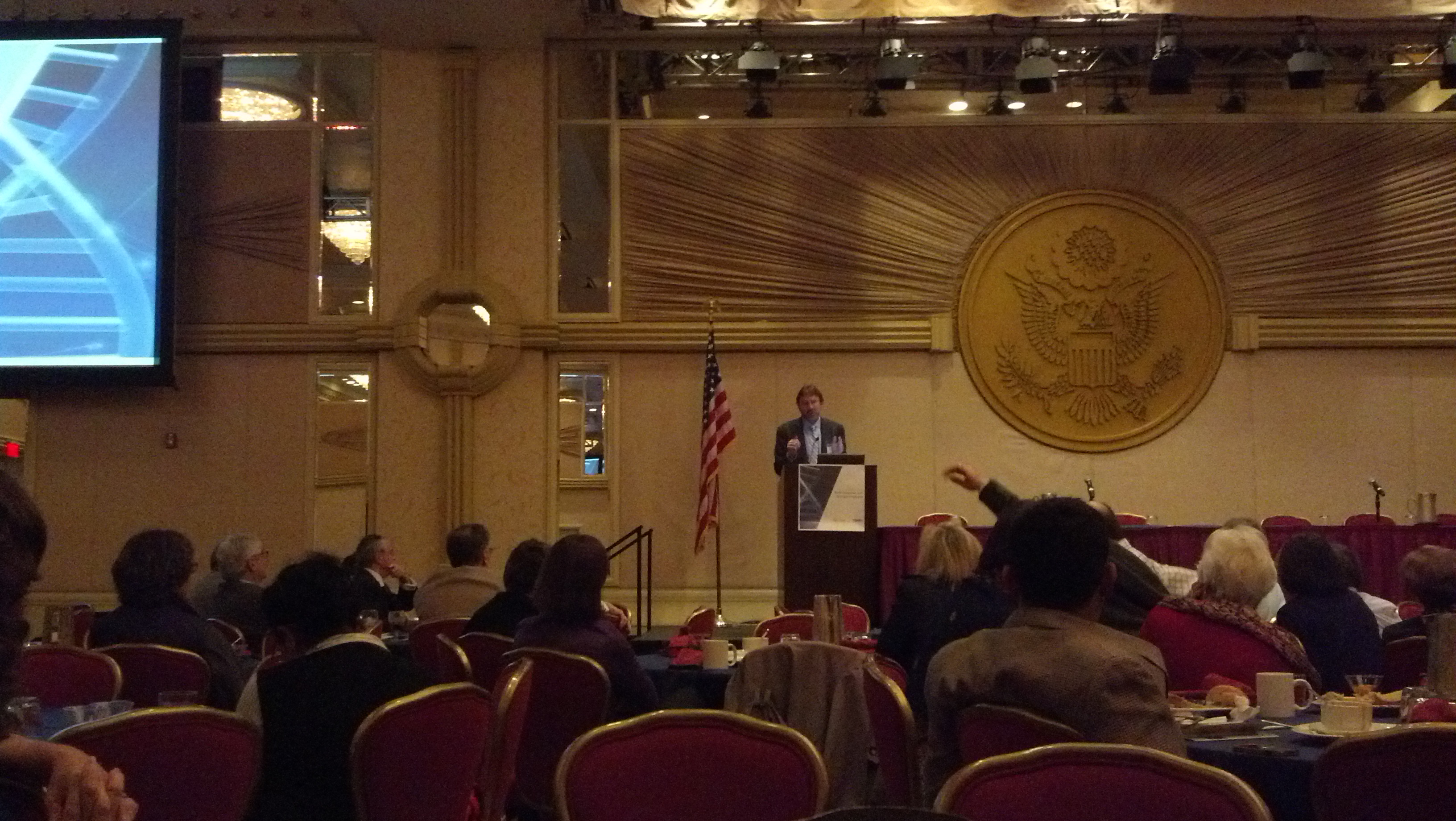NORD/DIA Conference Highlights, October 22-24 2012
 Autosomal Recessive Polycystic Kidney Disease and Congenital Hepatic Fibrosis Represented
Autosomal Recessive Polycystic Kidney Disease and Congenital Hepatic Fibrosis Represented
Meeting the Needs of Rare Disease
The Drug Information Association (DIA) and the National Organization for Rare Disorders (NORD) teamed up to present a 3-day conference in Washington, D.C.. This was supported in part by Eurordis (Rare Disease Europe), Duke University, Food and Drug Administration (FDA), and the National Institutes of Health (NIH). Policy makers, researchers, clinicians, and patient advocates presented and discussed the latest research models and drug development policies and programs, including NCATS, TRND, FDASIA, and the repurposing of drugs.
The National Center for Advancing Translational Sciences (NCATS) is not research business as usual, but disruptive to the way things have been. The rules are being rewritten and replaced with superior approaches and are not contingent on independent researchers or tenure. Instead of stagnation and hold-ups, the re-engineering of the clinical research process will catalyze translational research.
Therapeutics for Rare and Neglected Diseases (TRND) program lives within NCATS and must be orphan designated, meaning therapy must be intended for a rare condition. Another highly innovative activity is the development of tissue-chips for drug screening that mimics human physiology and will predict drug safety and efficacy. Furthermore, the Food and Drug Administration Safety and Innovation Act (FDASIA), signed into law this summer, will accelerate pediatric drug development, while drug rescue and repurposing of compounds continues to hold promise and transformation.
A constant theme heard throughout, from industry, policy makers, and researchers was that rare disease is a desirable pathway to understanding common disease treatments and individualized care. The rare disease model is personalized medicine; it provides a sharpened focus. This is exactly what the ARPKD/CHF Alliance recognized and endorsed since our founding; what we learn about the rare form of PKD will help the more common form of PKD. What is more, patient oriented clinical research depends on parent/patient organizations, such as the ARPKD/CHF Alliance.
Another continuous theme heard was that research is a “team sport;” collaborations and partnerships must include all stakeholders for forward movement. Furthermore, a drug cannot be developed without a natural history study such as our “Clinical Investigations into ARPKD/CHF,” and that patient disease advocacy registries can be very effective to understanding the disease process and pushing the science. An example of this is our ARPKD/CHF Alliance GRDR registry; it will secure data for future clinical trials, permit research with the highest patient protection, and have the ability to communicate safely with other disease registries.
There have been bumps along the way and some will continue for rare diseases, but right now there is real interest in rare disease by researchers and industry like never before, thanks to the hard work of many. There has never been a better time to have a rare condition. The ARPKD/CHF Alliance continues having an impact towards “improving patient outcomes” with the patient voice within research networks and professional circles, to position and create a stronger influence for our disease. We’ve come a long way from the doom and gloom that was typical at our start-up.
